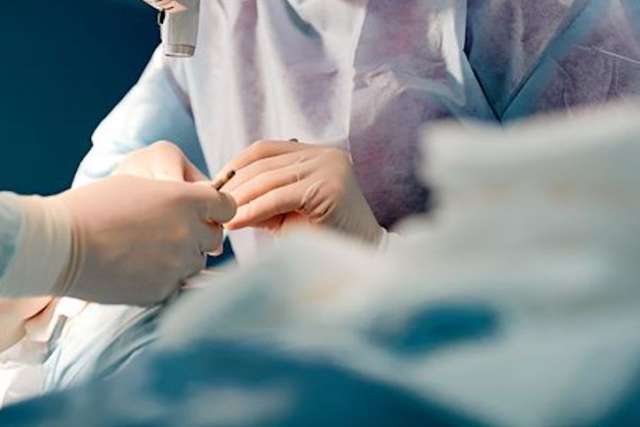UCLA's gender-affirming reconstructive surgery fellowship ‘fulfills a tremendous need’

Gender reconstructive surgery makes many demands of practitioners who choose this field. According to Gladys Ng, MD, associate clinical professor of urology and surgical director of the UCLA Gender Health Program, it requires the deft hands of a surgeon, the aesthetic bent of an artist and the compassionate heart of a social worker.
The number of programs that offer training for doctors looking to enter this field can probably be counted on one hand, said Andrew Zilavy, MD, the first recruit of UCLA’s Genital Gender-Affirming Surgery fellowship.
The fellowship is a one-year training program after residency. It focuses on all aspects of the diagnostic and therapeutic management of patients with gender dysphoria seeking gender-affirming genital surgery.
Fellows will practice with faculty primarily at UCLA Urology’s Burbank and Westwood clinics and operate in UCLA’s main Westwood medical center and UCLA Santa Monica Medical Center, said Dr. Ng, who also serves as the fellowship program director. In addition to clinical responsibilities, she said, the fellow will participate in the activities of the multidisciplinary team of specialists.
The fellowship was born out of the UCLA Gender Health Program with the goal of training more health care providers, physicians and surgeons to provide care to transgender patients, she said.
“There is a high demand relative to the number of providers,” Dr. Ng said. “There is a need to train more surgeons to provide gender-specific care including genital gender-affirming surgery to help people align their bodies with their gender identities.”
Complexities and challenges
Gender reconstructive surgery is unique not just because of the complexities in performing these procedures. There are many other unique challenges faced by transgender patients, Dr. Ng said.
Dr. Zilavy said there is “a general lack of access to care that is not present in other fields.”
“There is also a need to coordinate between providers. So, it’s a team effort more so than any other field of medicine,” he said.
Dr. Ng describes gender-affirming surgeries “as the pinnacle of reconstruction.”
“These are life-altering changes to one’s body,” she explained. “They are complex with regard to aesthetics and functionality. To recover from these surgeries can be a lot, including the maintenance, which can also be a lot.”
Need for more resources and services
Dr. Ng says there is a continuing need for services and resources for transgender people. She, herself teaches nursing staff. She attends conferences along with other providers, mental and behavioral health specialists and social providers.
“To have all these other resources available and in place is crucial,” Dr. Ng said. “The program building is a continuous process.”
Some of the many qualities Dr. Ng says she looks for in a fellow are keen observation skills and willingness to learn, because the job requires them.
Patients’ mental health is also a major concern in this area of medicine, Dr. Ng said.
“When I’m concerned about a patient’s mental health when I see them, I refer them to the appropriate resources here in UCLA,” she said. “For example, when patients are in a social situation where they are not recovering well, I ask the Gender Health Program team to look into it and provide resources or help. Sometimes, people come for revision surgery when things did not go well the first time. There could be a lot of trauma associated with that.”
In such situations, past traumas could be triggered for patients when they visit the clinic.
“We do our best to make sure we’re not going to make it worse for them,” she said.
Rewarding and joyful work
As the program’s first fellow, Dr. Zilavy said he has been pleasantly surprised by how “well-oiled the Gender Health Program is in UCLA.”
“That is the manifestation of a lot of people’s very hard work,” he said. “To have this program running like this – getting people the care they need socially, medically, surgically – I had not expected it to work this well. It comes down to a lot of people who care.”
Both Drs. Ng and Zilavy say while the challenges are many in this work, the rewards are also rich.
“I’ve had many patients thank me for changing their lives,” Dr. Ng said. “Patients tell me they are very happy after surgery. For me, it is gratifying to see that these people are able to get on with the lives they want to live.”
Take the Next Step
Learn more about the Gender Health Program at UCLA Health.
